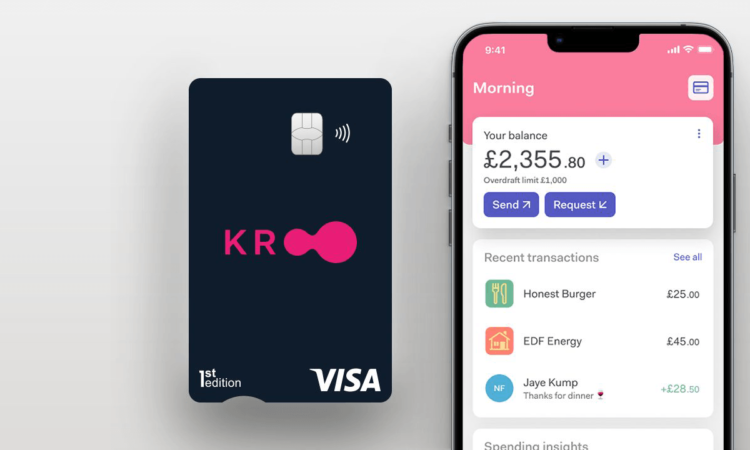
UK digital challenger bank Kroo Bank is gearing up for a fundraise of up to £70m and is to launch a current account tracker rate, as it rails against traditional banks’ “cryptic” interest rate levels.
Kroo was granted a full UK banking licence last year and has caused a stir in the market with its current 4.35 percent interest rate on its current account, outstripping rivals and rated by financial pundit Martin Lewis as a “top-pick bank account”.
In October, Kroo will launch a tracker rate, in an effort to entice customers.
This tracker rate will see customers paid at a rate, which will be 0.9 percent lower than whatever is the Bank of England base rate, currently 5.25 percent.
The 0.9 percent deduction, says Kroo CEO Andrea De Gottardo, is “the bare minimum to cover some of the costs”.
He adds:
“Banks have been for far too long way too obscure and cryptic and the customer never quite understands how the rate is set on.”
With the tracker rate, he says the customer is “fully empowered and knows exactly what the rate is based on”.
The app-based bank is something of a rarity, as banks seldom offer significant interest rates on free current accounts.
The neobank, founded in 2016, is still small compared to the likes of Starling and Monzo but is hoping its eye-catching interest rate, coupled with social media advertising can woo customers.
It launched a prepaid payment card offering in 2019, which it has since been trying to covert to full current account customers, following the netting of its UK banking licence.
De Gottardo says it has now more than 130,000 current accounts, seven months after launching the product, representing a “good mix’” of customers moving from traditional and challenger banks to Kroo.
De Gottardo says Kroo’s aim is to garner a million customers over “the next couple of years”. Its primary market is 18 to 35-year-olds.
Kroo (the name doesn’t mean anything specifically but wants to invoke building a crew in the consumer’s mind) raised $33m (£26m) in a Series B in May last year.
It is now looking to rise between £50m and £70m in a Series C round which is likely to kick off later this year or early next year.
“I would be delighted if we get it finalised and closed up this year,” he says.
According to Sifted, its team has grown by 137 percent to 216 employees in the past 12 months. De Gottardo says the number now stands at around 250.
The reason for the uptick, says De Gottardo, is the bank has been busy, moving into lending, opening a second office in Manchester, and launching a customer acquisition drive.
On it receiving a full UK banking license, De Gottardo says it is “the hardest thing I have ever done in my life”.
It was “much longer and much harder than we originally anticipated but we understand why it is so hard, it is a big responsibility,” he adds.
Critics might suggest that Kroo is late to the party, and that the UK neobank winners have already been decided.
But De Gottardo points to Bank of England data showing 84 percent of people in the UK bank with traditional banks.
“When we think that Monzo and Starling have already made it, it’s not quite [true} because they were only able to attract a very small proportion of a big market, so there is still a lot of space for new players to get in there.”
Kroo is not yet profitable and De Gottardo says he believes it will be profitable in a shorter period than it took Starling, around five years, and Monzo, around eight years, to swing into profit. But he will not put a timeframe on when this will be.
The bank partners with a reforestation project and plants trees for every new customer that joins.
Lead image via facebook.com/getkroo





